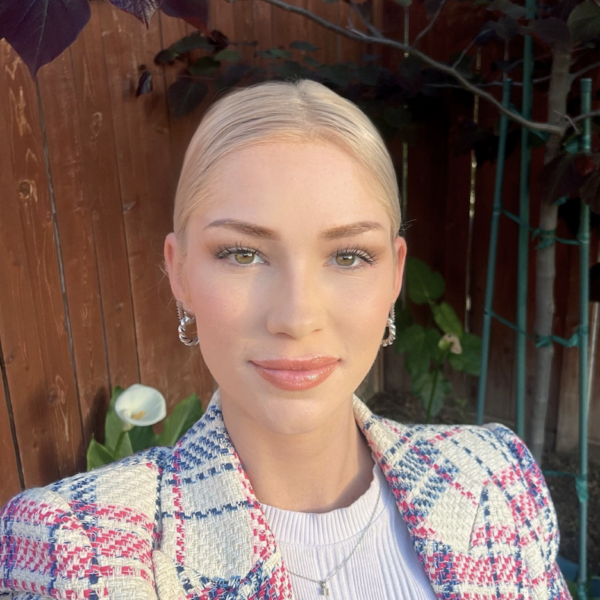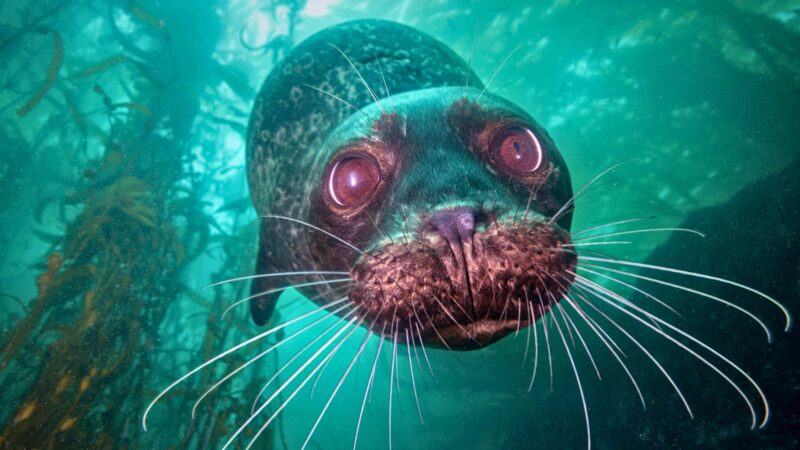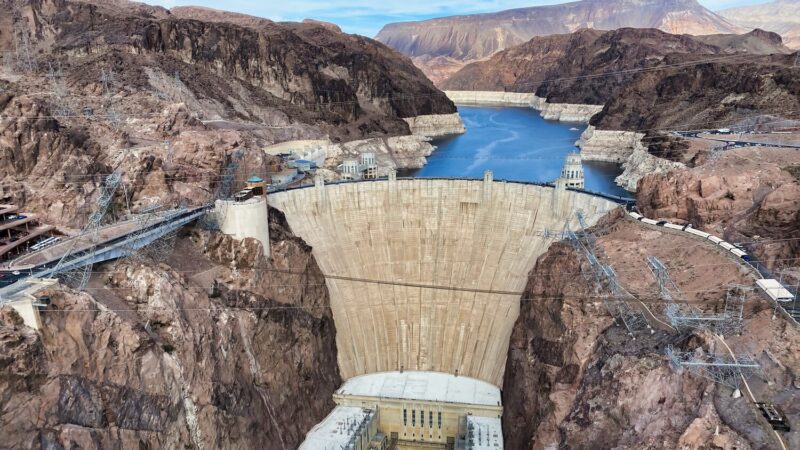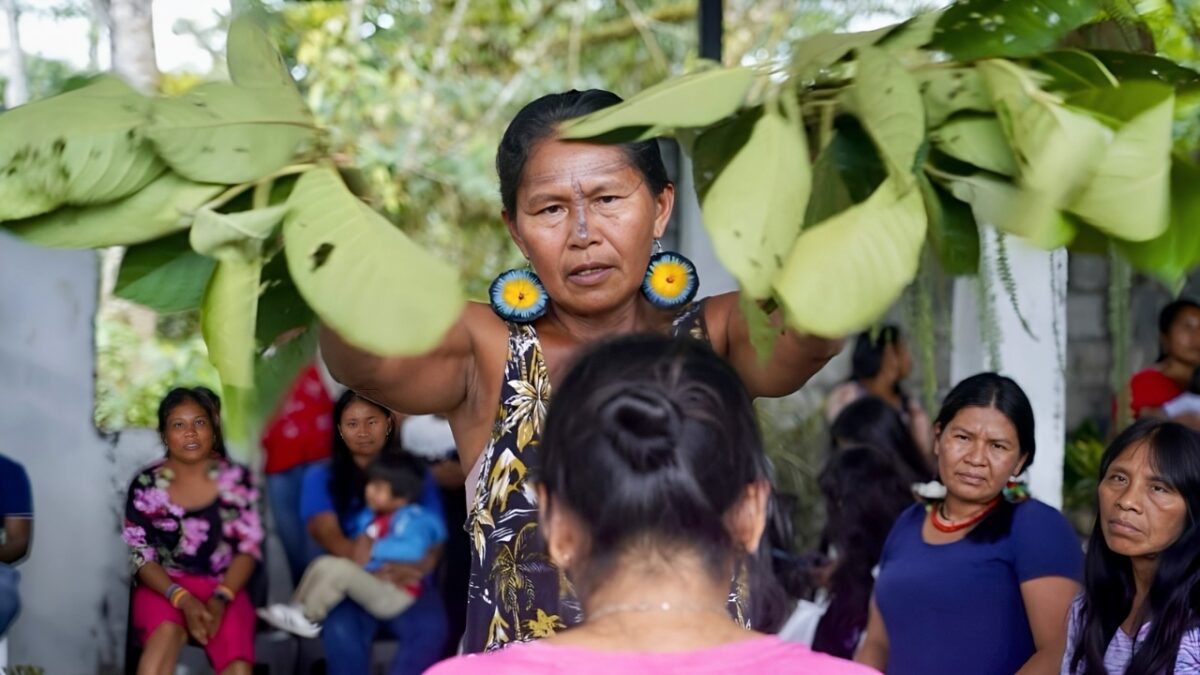
Meet the 2024 Pritzker Environmental Genius Award Candidates #1-5
The first five candidates for the 2024 Pritzker Emerging Environmental Genius Award are protecting threatened marine species, empowering underserved communities and restoring ecosystems on a global scale. Their work highlights…
Impactful environmental change requires bold vision and local action — and these emerging leaders are doing just that.
The first five candidates for the 2024 Pritzker Emerging Environmental Genius Award are protecting threatened marine species, empowering underserved communities and restoring ecosystems on a global scale. Their work highlights not only the urgency of today’s challenges, but the potential for scalable strategies that can shape a more resilient future.
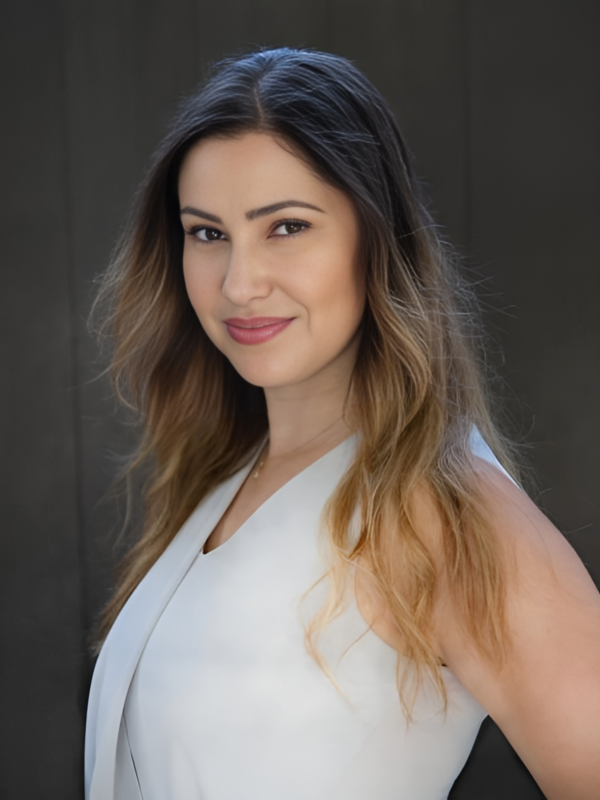
Stephany Campos, director of strategic planning and special projects, Homeless Health Care Los Angeles (HHCLA), director of the ReFresh Spot
More than half a million people experience homelessness on any given night in the United States. This population is disproportionately affected by environmental hazards, leading them to face a mortality rate nearly four times higher than the general population.
Stephany Campos is a public sector leader who has dedicated her career to serving the unhoused population of Los Angeles. As director of strategic planning and special projects at HHCLA, Campos has overseen the growth of the organization by launching urban planning and public health initiatives to mitigate systemic factors that contribute to homelessness across LA County.
Campos plays a vital role in implementing local, essential and accessible services to promote mental, physical and behavioral wellbeing. She is director of the ReFresh Spot, a 24/7 hygiene center that offers showers, laundry services, restrooms and even a quaint library to people experiencing homelessness. The facility sees over 200,000 service utilizations per year, allowing Skid Row residents to have their basic needs met through non-discriminatory and comprehensive resources.
Campos emphasizes a client-centered and harm reduction approach in her work. Her team plays a vital role in preventing heat-related and substance use-related deaths, providing clean water access points, overdose prevention kits and mobile oxygen distribution. Despite obstacles like pervasive social stigmas against people who are unhoused, or who have mental health disorders and substance use disorders, Campos remains committed to overcoming these barriers through education and compassion in her advocacy work.
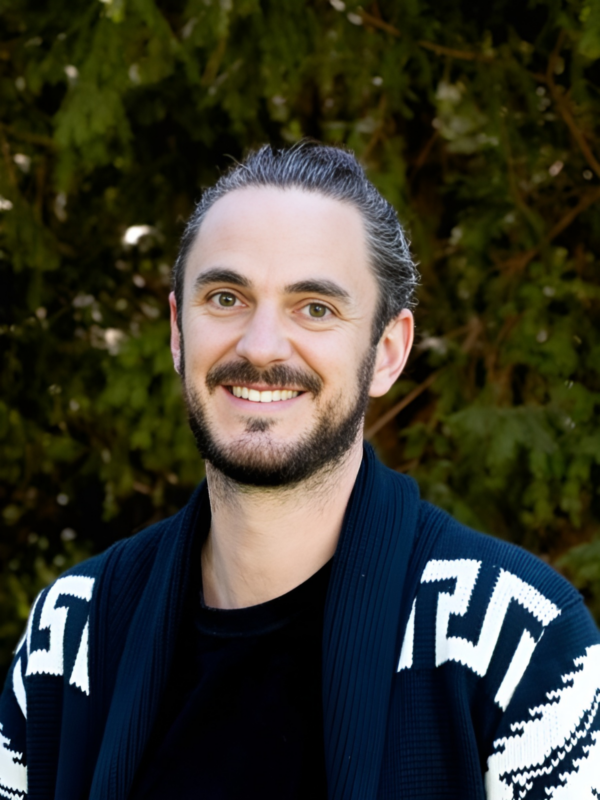
Thomas Crowther, professor of ecology, ETH Zürich
Deforestation and land degradation have led to the loss of over a third of the world’s forests in the past 10,000 years, threatening biodiversity, food security and climate stability. Thomas Crowther, an ecologist and environmental scientist, pioneers solutions to reverse this damage through global ecosystem restoration.
As the founder of Crowther Lab, he leads initiatives that use data-driven insights to support large-scale reforestation and biodiversity efforts worldwide. Crowther’s work is built on his research, which mapped the global distribution of tree density and identified the planet’s restoration potential. His findings showed that restoring degraded lands could capture over 200 gigatons of carbon, highlighting the critical role reforestation plays in combating climate change.
Crowther’s work has since evolved into Restor, a digital platform he founded that connects ecological data with local restoration projects, empowering communities with the knowledge and resources they need to restore degraded ecosystems effectively. With over 100,000 projects from 160 countries registered on the platform, Restor has become a global hub for restoration efforts, transforming scientific insights into actionable outcomes.
By uniting researchers, NGOs and communities, Crowther envisions a future where data-driven restoration becomes standard practice, making large-scale environmental recovery scalable and sustainable. With plans to further develop Restor’s tools and expand its global reach, his vision of restoring one trillion trees stands as an impactful response to one of the most pressing challenges of our time.
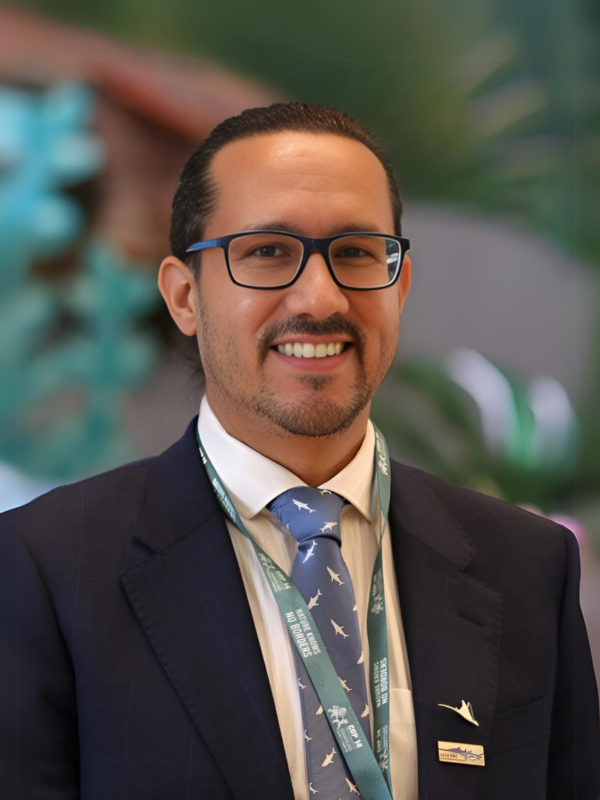
Daniel Fernando, co-founder and director, Blue Resources Trust
Sharks and rays are among the most vulnerable marine species — a third are at risk of extinction due to overfishing and habitat loss. Daniel Fernando, a marine biologist and conservationist, has dedicated his career to bridging the gap between science and policy to protect them.
As co-founder of Blue Resources Trust, Fernando leads initiatives focused on sustainable fisheries, marine conservation and community engagement across the Indian Ocean region. His work is grounded in his extensive research on elasmobranchs — sharks, rays and skates — particularly in Sri Lanka’s artisanal and small-scale fisheries. By gathering crucial data at isolated landing sites and engaging directly with local fishers, Fernando and his team identify vulnerable species and inform sustainable management strategies that can be applied across Sri Lanka and beyond.
Fernando also plays a pivotal role in shaping international conservation policy. For over a decade, he has served as an expert advisor at global conventions such as CITES (Convention on International Trade in Endangered Species). His advocacy contributed to the successful listing of several shark and ray species under protective agreements.
Through Blue Resources Trust, Fernando empowers local communities by promoting science-based decision-making and fostering awareness of marine conservation. Whether developing educational programs for schools or engaging journalists and stakeholders, he ensures that conservation efforts are not only scientifically rigorous but also inclusive and community-driven.
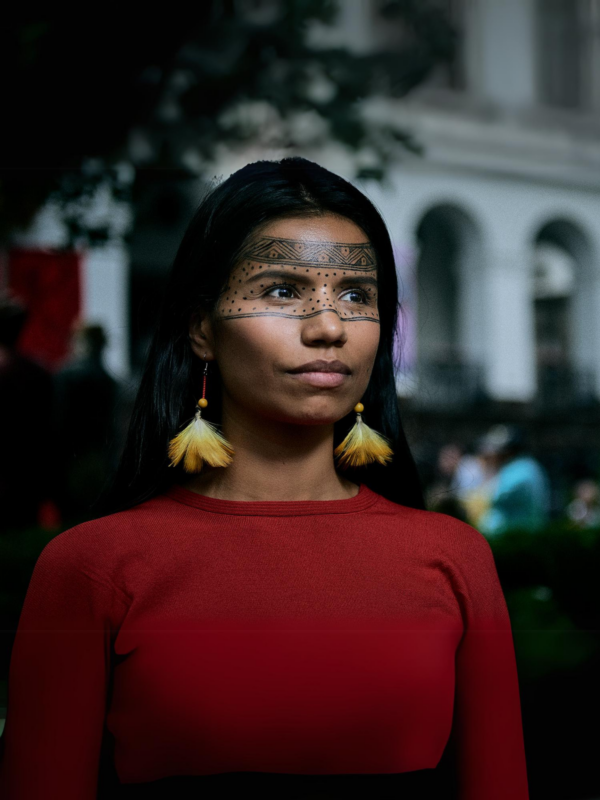
Nina Gualinga, co-director and spokesperson, Mujeres Amazónicas Defensoras de La Selva
In the heart of the Amazon rainforest, Indigenous communities are the first line of defense against deforestation and natural resource extraction that threaten their homes. Despite representing only 5% of the world’s population, Indigenous peoples safeguard 80% of global biodiversity. Among these defenders is Nina Gualinga, a leader of the Kichwa people of Sarayaku in Ecuador and an international advocate for Indigenous rights and environmental justice.
As a spokesperson for the Kichwa people, Gualinga has become a global voice in the fight against deforestation and climate change, emphasizing the essential role that Indigenous knowledge—particularly that held by Indigenous women—play in protecting ecosystems. She has spoken at major international platforms, including the UN Climate Change Conferences, where she highlights the disproportionate impact of climate change on Indigenous communities and advocates for stronger protections for their land.
In addition to her global advocacy, Gualinga remains deeply committed to grassroots efforts. She co-directs Mujeres Amazónicas, an organization that strengthens the rights, autonomy and safety of Indigenous women who are often at the forefront of opposing extractive industries. Through her work, she addresses gender-based violence, supports women’s participation in decision-making processes and promotes the preservation and restoration of biodiversity.
Gualinga’s initiatives, including co-founding Hakhu Amazon Design, empower women artisans to generate sustainable income while preserving cultural heritage. Her work is rooted in the principle of “Living Forest” or Kawsak Sacha, a holistic worldview that recognizes the interconnectedness of all life and advocates for the legal recognition of nature’s rights. Her forward-looking vision is to aamplify this philosophy globally, urging governments to respect Indigenous sovereignty and integrate Indigenous-led conservation strategies into climate policies.
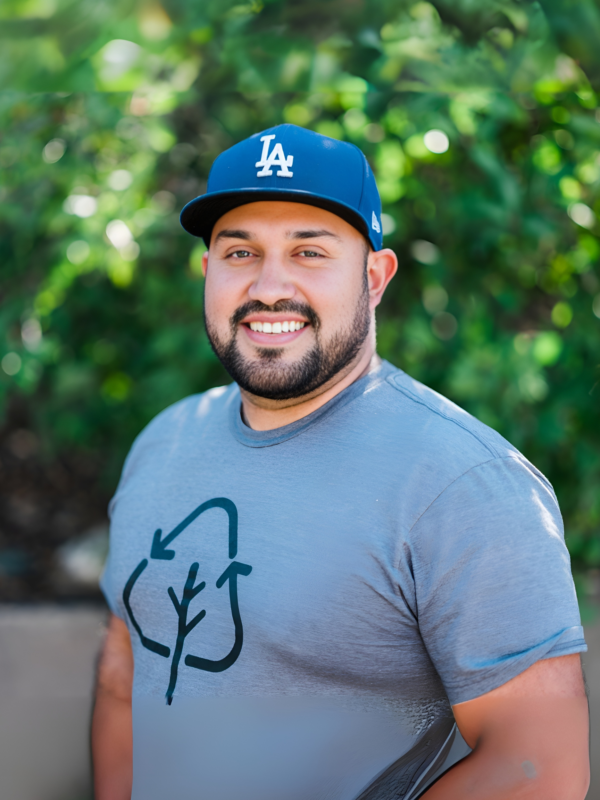
Michael Martinez, founder and executive director, LA Compost
In the United States, food waste accounts for nearly 30% of the total waste stream, contributing to both environmental degradation and lost resources. Yet, in urban areas like Los Angeles, there’s a growing movement to turn food waste into community strength through composting. Michael Martinez, the founder and executive director of LA Compost, has been at the forefront of this movement, reshaping how Angelenos view and interact with their food waste.
Under Martinez’s leadership, LA Compost has expanded from a single site in 2013 to a network of over 50 community compost hubs across the county. These sites transform organic waste into nutrient-rich soil, which is then used to support local gardens, urban farms and green spaces. By integrating composting into public life, Martinez’s work not only promotes sustainability, but also equity by providing underserved communities with the resources to grow their own food and reclaim green spaces.
What sets Martinez apart is his commitment to building a circular economy rooted in community. LA Compost doesn’t just divert waste from landfills—it also serves as an educational resource. Through workshops, partnerships with schools and hands-on volunteerism, Martinez empowers residents to take part in regenerative practices that benefit their neighborhoods.
Looking forward, Martinez envisions a city where composting is a routine part of every household, and where communities take ownership of the waste they generate. By fostering a culture of sustainability and resilience, he is turning what others see as waste into a catalyst for environmental and social change.
Published:
